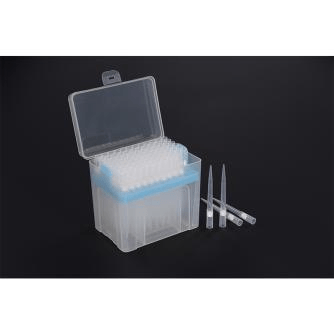How to Prevent Contamination with Pipette Tips?

Contamination can significantly impact the accuracy and reliability of your laboratory results. Here are some key steps to prevent it using pipette tips:
General Prevention Measures
l Use a new tip for each sample: This is the most fundamental way to prevent cross-contamination between samples.
l Avoid touching the tip with your fingers: Your hands are a major source of contamination. Wear gloves and avoid touching the tip's exterior.
l Use filtered tips: These tips contain a porous filter that prevents aerosols and liquid droplets from entering the pipette, reducing the risk of contamination.
l Proper pipetting technique: Ensure you are using the correct pipetting technique to avoid creating aerosols or drawing liquid into the pipette body.
l Regularly clean the pipette: Follow the manufacturer's instructions for cleaning and disinfecting your pipette to prevent buildup of contaminants.
Specific Contamination Types
Sample-to-sample contamination
l Use filtered tips.
l Change tips between samples.
l Consider using aerosol-resistant tips.
Sample-to-pipette contamination
l Hold the pipette vertically during pipetting to prevent liquid from entering the pipette body.
l Use filter tips.
l Avoid immersing the tip too deeply into the liquid.
l By following these guidelines, you can significantly reduce the risk of contamination and ensure the accuracy of your experiments.
- Art
- Causes
- Crafts
- Dance
- Drinks
- Film
- Fitness
- Food
- Spiele
- Gardening
- Health
- Home
- Literature
- Music
- Networking
- Other
- Party
- Religion
- Shopping
- Sports
- Theater
- Wellness


